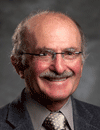Charles Cantor,
Chief Scientific Officer,
Sequenom Inc
Charles Cantor is a founder, and Chief Scientific Officer at SEQUENOM, Inc. He is also founder of SelectX Pharmaceuticals, a drug discovery company based in the Boston area; Retrotope, an anti-aging company; and DiThera, a biotherapeutic company. He is co-director of the Center for Advanced Biotechnology at Boston University, and professor emeritus of Biomedical Engineering. Dr. Cantor has held positions at Columbia University and University of California at Berkeley, and was also director of the Human Genome Center of the Department of Energy at Lawrence Berkeley Laboratory. He has published more than 450 peer-reviewed articles, has been granted more than 60 patents. He co-authored a three-volume textbook on Biophysical Chemistry and the first textbook on Genomics: The Science and Technology of the Human Genome Project. He sits on the advisory boards of more than 15 national and international organizations and is a member of the National Academy of Sciences.
|

|
|

 Add to Calendar ▼2014-02-25 13:45:002014-02-25 14:45:00Europe/LondonNoninvasive Personalized GenomicsNext Generation Sequencing: Research to Clinic in San Diego, California, USASan Diego, California, USASELECTBIOenquiries@selectbiosciences.com
Add to Calendar ▼2014-02-25 13:45:002014-02-25 14:45:00Europe/LondonNoninvasive Personalized GenomicsNext Generation Sequencing: Research to Clinic in San Diego, California, USASan Diego, California, USASELECTBIOenquiries@selectbiosciences.com Add to Calendar ▼2014-02-24 00:00:002014-02-25 00:00:00Europe/LondonNext Generation Sequencing: Research to ClinicNext Generation Sequencing: Research to Clinic in San Diego, California, USASan Diego, California, USASELECTBIOenquiries@selectbiosciences.com
Add to Calendar ▼2014-02-24 00:00:002014-02-25 00:00:00Europe/LondonNext Generation Sequencing: Research to ClinicNext Generation Sequencing: Research to Clinic in San Diego, California, USASan Diego, California, USASELECTBIOenquiries@selectbiosciences.com